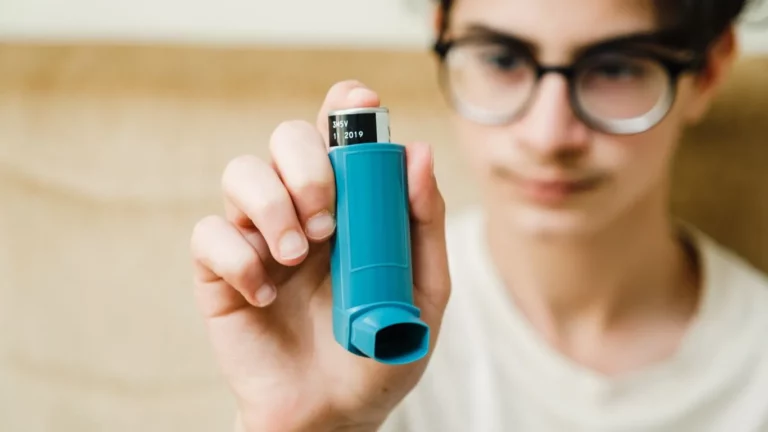Silent Reflux Treatment That Works: Best Remedies for Lasting Relief
If you’ve ever had a persistent cough, a weird lump-in-the-throat feeling, or lost your voice for no obvious reason, I totally get it. I’ve been there. For months, I brushed it off as seasonal allergies or just “talking too much.” But when I started waking up with a sore throat and no signs of a cold, I realized something deeper was going on. That’s when I stumbled upon something called silent reflux — also known as laryngopharyngeal reflux (LPR). Unlike classic heartburn, this one sneaks in quietly, often without the burning sensation you’d expect.
What Exactly Is Silent Reflux (LPR)?

Silent reflux happens when stomach acid travels up the esophagus and reaches the throat or voice box (larynx). Unlike typical acid reflux or GERD, you may not feel heartburn at all — hence the term “silent.”
Why It’s So Easily Missed
Because it doesn’t come with the telltale chest burn, people (including me) often mistake it for postnasal drip, asthma, or even anxiety. But it’s still causing irritation — just in less obvious places. Over time, this can lead to hoarseness, chronic cough, throat clearing, and even trouble swallowing.
Common Symptoms to Watch Out For
- Chronic sore throat, especially in the morning
- Frequent throat clearing or coughing
- Hoarseness or loss of voice
- A feeling of something “stuck” in the throat
- Difficulty swallowing
- Bad breath or bitter taste in the throat
According to Mayo Clinic, silent reflux is often underdiagnosed because symptoms are vague and overlap with other conditions. That makes awareness and early action all the more critical.
What Causes Silent Reflux?

Silent reflux is often triggered by similar mechanisms as GERD, but the way it manifests can vary. Here are some of the most common culprits:
- Weak Lower Esophageal Sphincter (LES): When this valve fails to close properly, stomach contents can sneak upward.
- Overeating or lying down after meals: Both increase pressure in the abdomen and push acid upwards.
- Obesity: Extra belly weight puts pressure on the stomach and LES.
- Smoking: Weakens the LES and increases acid production.
- Dietary triggers: Foods like chocolate, caffeine, spicy dishes, citrus, and fatty meals are frequent offenders.
Many people dealing with LPR also experience throat tightness from GERD, especially after meals or at night, when acid reflux is more likely.
Natural Lifestyle Tweaks That Made a Real Difference for Me

Silent reflux isn’t something you can “tough out.” I tried that. It only got worse. But once I made a few realistic changes, the improvement was honestly surprising. Here’s what worked for me and many others:
1. Eating Smaller, Slower Meals
This is a game-changer. I used to inhale food like I was racing the clock — no good. Now I eat smaller portions, chew more, and avoid lying down afterward. This one tip alone reduced the lump-in-throat feeling dramatically.
2. Elevating the Head of the Bed
Gravity is your friend when you sleep. Raising the head of my bed by 6-8 inches helped reduce nighttime reflux significantly. If you’re struggling with nighttime GERD, this is worth trying.
3. Avoiding Trigger Foods
It took some experimenting, but I quickly realized that garlic, fried food, and chocolate were my personal triggers. Everyone’s different, but tracking your meals and symptoms for a week can help connect the dots.
4. Hydration and Herbal Remedies
Drinking warm water or soothing teas like chamomile or slippery elm really helped calm things down. I’ve also found relief with slippery elm for reflux — it coats and protects the esophagus.
5. Reducing Stress (Yes, It Matters)
I didn’t expect stress to play such a huge role, but it really does. High cortisol can mess with digestion and make reflux worse. Meditation, deep breathing, and walking daily helped me feel more balanced. Check out these stress management techniques for reflux.
Do You Need Medication?

This is a question best answered with the help of a healthcare provider. In my case, I started with lifestyle changes first. When symptoms lingered, my doctor recommended an H2 blocker, which gave some quick relief. For others, proton pump inhibitors (PPIs) are commonly prescribed to reduce acid production.
According to National Library of Medicine, PPIs are considered the standard treatment for LPR, but not everyone responds the same. Some people require long-term therapy, while others do better combining meds with lifestyle adjustments.
When to See a Specialist
If symptoms persist despite trying natural remedies and OTC meds, it’s time to get checked. Persistent hoarseness, trouble swallowing, or throat pain could indicate something more serious. An ENT or GI doctor may recommend tests like a laryngoscopy or 24-hour pH monitoring.
Also, this guide on GERD diagnosis is worth reading if you’re unsure what tests might help clarify things.
Explore More Proven Treatment Paths

If you’re ready to dive deeper into proven relief strategies, the Best GERD Treatments guide breaks down fast, effective options tailored to different symptoms — including silent reflux.
Do Alginates Actually Work for Silent Reflux?

Short answer? Yes — for many people. Alginates are one of those underrated solutions I wish I had known about earlier. They’re not acid suppressors like PPIs, but they create a physical barrier, forming a foamy raft on top of stomach contents to block acid from splashing up the esophagus.
I started using alginate-based products after meals and before bed. Honestly, the difference was noticeable. Especially helpful on days when I ate out or felt a flare-up coming. If you’re curious, here’s a more in-depth look at how alginates support GERD and LPR management.
Voice Therapy for Chronic Hoarseness and Throat Issues

One of the more surprising things I learned was that silent reflux can actually damage the vocal cords over time. I had lingering hoarseness that wouldn’t quit — turns out, my throat was constantly irritated from micro amounts of acid creeping up.
That’s where voice therapy came in. A speech-language pathologist helped retrain my vocal habits to reduce strain. If you use your voice professionally (or just value being able to speak without raspiness), this might be something to consider.
Dietary Overhaul — But Realistic

Let’s be honest: completely overhauling your diet overnight isn’t sustainable for most of us. But a few smart swaps and food awareness go a long way. I didn’t go full-blown restrictive — just started choosing meals that didn’t fight back later.
What I Cut Back On:
- Tomato-based sauces (especially at night)
- Carbonated drinks and citrus juices
- Heavily spiced or greasy takeout
- Chocolate (sad, but worth it)
What I Added More Of:
- Oatmeal (gentle and filling)
- Cooked veggies like zucchini, carrots, and sweet potatoes
- Lean proteins: grilled chicken, turkey, fish
- Low-acid fruits like bananas, pears, and melons
For more ideas, this GERD food guide helped me figure out meals that didn’t trigger symptoms but still tasted good.
Alternative Therapies — Helpful or Hype?

I was skeptical at first, but some complementary treatments really made a difference when used alongside the basics.
Acupuncture
I tried acupuncture after reading studies showing reduced reflux episodes. After a few sessions, I did notice better sleep and less chest tightness. It’s not magic, but it’s worth exploring if traditional approaches aren’t cutting it.
Digestive Enzymes and Supplements
I began taking a low-acid papaya enzyme supplement after meals, which seemed to ease digestion. And when I felt gassy or bloated (which made reflux worse), activated charcoal helped take the edge off.
Breathing and Posture Techniques
Deep breathing exercises (think diaphragm-focused) helped me manage tension and improved digestion. Good posture also kept stomach contents where they belonged. If you’re slouching while reading this… straighten up. Your stomach will thank you.
When Is It Time for Advanced Medical Care?

If you’ve given lifestyle changes, meds, and home remedies an honest shot and you’re still feeling miserable, it’s okay to escalate. Silent reflux left untreated can lead to serious complications like chronic laryngitis, vocal cord nodules, or even airway issues.
Tests That May Be Recommended
- Laryngoscopy: A camera checks your throat and vocal cords for signs of inflammation or damage.
- pH monitoring: Measures how often and how long acid enters the upper airway or esophagus.
- Esophageal manometry: Assesses how well the muscles of your esophagus work.
It’s worth reading about GERD diagnosis methods so you’re prepared when speaking with a specialist.
Creating Your Personalized Silent Reflux Plan

No two bodies are the same. What works for one person might not work for another — and that’s okay. The key is to figure out what triggers your symptoms, find a plan that fits your lifestyle, and make adjustments over time.
For many, that looks like a combo of medication, mindful eating, proper sleep positioning, and reducing inflammation naturally. And most importantly, give yourself grace — healing takes time.
To dive deeper into long-term recovery options and see what may work best for you, check out the Best GERD Treatments guide. It offers a detailed breakdown of treatment tiers — from home fixes to clinical procedures — grounded in real results and expert insights.

Camellia Wulansari is a dedicated Medical Assistant at a local clinic and a passionate health writer at Healthusias.com. With years of hands-on experience in patient care and a deep interest in preventive medicine, she bridges the gap between clinical knowledge and accessible health information. Camellia specializes in writing about digestive health, chronic conditions like GERD and hypertension, respiratory issues, and autoimmune diseases, aiming to empower readers with practical, easy-to-understand insights. When she’s not assisting patients or writing, you’ll find her enjoying quiet mornings with coffee and a medical journal in hand—or jamming to her favorite metal band, Lamb of God.







